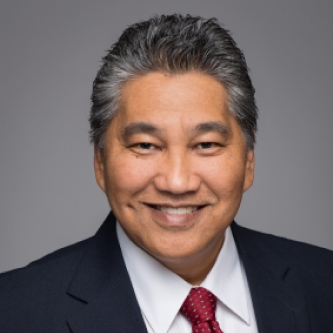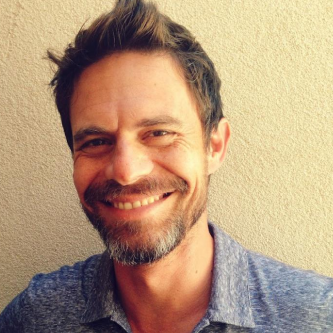Governance
Introduction
Verifiable and persistent identity is the foundation of all economic systems. Industrialized societies built robust, functional identity verification platforms, and thus have access to lower cost capital (due to lower perceived risk), which promotes capital concentration, creating a self-fulfilling system of the poor staying relatively poorer. The industrialized societies have been, until now, unable to accept risk at the same rates in emerging societies. The lack of that identity is a major impediment to service access by the poor and those unable to directly participate in the global digital economy.
With the advent of the Everest Foundation, that paradigm changes, bringing those communities without access to trustworthy legal identity into the 21st century digital economy. This is done by providing the people of these communities with digital identities, digital wallets, and document management stored on their own database-accessible and controllable by that individual along with the education and training to properly gain adoption.
By incorporating biometrics, (and through partnerships) existing government IDs and 3rd party attestations that are housed in this distributed, user-owned datastore, the EF extends digital identity, digital wallets and document storage to populations that do not own a personal device; although enrollment requires a smartphone, usage & ownership of this user-centric identity + wallet + documents only requires biometrics (i.e. face) and a PIN. With the proverbial shirt on one’s back, one is able to be verified, access one’s wallet, manage one’s documents and engage in global value exchange in the 21st century economy.
Individuals who own mobile phones will be able to expand their digital identity with additional sources of data and leverage it in more flexible ways. A user-centric, biometrically verifiable identity solves the problems that have plagued the 3+ billion people living in poverty.
By empowering individuals with the tools to protect and manage their own identity data, and importantly allows them to profit from institutions that wish to access data or verify their identity. For example, governments, banks, hospitals, utilities and other large institutions (“Network Customers”) need to verify identities to do such things as open a bank account, provide a mobile phone and SIM card, give and track a vaccine, get a SIM card, and receive food.
Purpose, Mission and Principles
The EF is a non-profit organization that leverages concepts from decentralized autonomous organizations (DAOs) to ensure that no centralized entity or person can access a user’s identity or account, thus ensuring that a global identity creation and verification network is secure and available in perpetuity. The DAO is organized to be self-funding based on the transactions processed over EverChain. That is, a percentage of the fees will be used to pay for the storage, bandwidth, and infrastructure to house identities and accounts in distributed storage around the planet. The architecture, intellectual property and infrastructure was initially developed by Everest, which also supplies ongoing support and maintenance. Since “identity” requires recourse (i.e. in case of a catastrophic hack or a user’s loss of facial or other biometrics), multiple, different keyholders can come together to fix such issues or release software that could jeopardize the security of the DAO. The EF’s keyholders are drawn from internationally and regionally recognized international organizations, NGOs, IGOs and philanthropic organizations who are aligned with the Principles of Identity for SDG; additionally, Everest holds two keys. Critical to this governance is that not a single entity, including the EF, Everest or any other organization, can open, change or alter any part of a user’s identity or account. As such, users are guaranteed (via code, not law) that their identities are private, secure, and lasting forever. Similarly, the EverChain network is governed by Validators, which, in addition to processing transactions across a permissionless network, vote on pricing of basic services, transaction burn percentage, and validator rewards, among other potential initiatives.
Keyholders
Jamal Khokhar

Jamal Khokhar has been Canada’s Ambassador to Turkey since November 2019. He also is accredited to Georgia, Azerbaijan and Turkmenistan. In January 2021, he was concurrently appointed as Canada’s Special Envoy to the Organization of Islamic Cooperation (OIC).
From 2015-2019, while on-leave from Government, he was President & CEO of the Institute of the Americas. Located on the campus of UC San Diego, the Institute advanced energy and sustainability, as well as innovation and entrepreneurship across the Americas.
From 2010-2015, he served Canada’s Ambassador to Brazil with oversight of the Embassy in Brasilia, Consulates General in Sao Paulo and Rio de Janeiro, and three regional trade offices.
Other appointments included being the Director General for Latin America and the Caribbean at Canada’s Department of Foreign Affairs and International Trade. In this capacity, he was responsible for overseeing Canada’s bilateral relationships in the region and was instrumental in leading the development of the Canada’s ‘Americas Strategy’.
Later, he was the Regional Director General for Latin America and the Caribbean at the Canadian International Development Agency (CIDA). His bureau was responsible for redefining Canada’s bilateral development assistance programming in the Americas, bringing focus to core countries of concentration and under the ‘aid-effectiveness’ agenda. As part of that portfolio, he also had oversight for what was then Canada’s second largest bilateral development assistance program -- CIDA’s bilateral programming in Haiti, at the time of the 2010 earthquake.
From 2006-2008, on-leave from Government, he was served as Chief of Staff to the President of the Inter-American Development Bank (IDB) in Washington, D.C., where he supported the President in the Bank’s transformation and renewal agenda. As part of his responsibilities, he focussed on renewing institutional governance and the leadership agenda.
Also at the IDB, he led the creation of the Bank’s new Department of Outreach and Partnerships and served as its first Executive Director. That department continues to be dedicated to establishing innovative high impact and social entrepreneurship partnerships with the private sector, NGOs, and private foundations.
Amongst other key foreign assignments, he served five years at Canada’s Embassy to the United States, first as Deputy Head of the Economic and Trade Policy Section, then as Minister-Counsellor and Head of the Congressional and Legal Affairs Section. At Headquarters, Mr. Khokhar was the Executive Assistant to two Deputy Minister’s for International Trade.
He has studied at McGill University in Montreal, the University of Ottawa, and the American University in Washington D.C.
In 2002-2003, he was a Fellow at Harvard University’s Weatherhead Center for International Affairs where he studied post-9/11 issues of religion, justice and peace in foreign policy.
Mr. Khokhar is a recipient of the Queen’s Diamond Jubilee Medal for leadership and excellence in the development and implementation of Canada’s ‘America’s Strategy.
Ramsay Taum

Recognized locally, nationally, and internationally for his work in promoting peace, forgiveness and the spirit of ALOHA, Ramsay Taum is a sought after mediator, facilitator, and transformational “revealer” dedicated to promoting peaceful, sustainable communities across Island Earth. Mentored and trained by respected kupuna, Hawaiian and Polynesian wisdom keepers and holders, Ramsay works with individuals, associations, businesses, corporations, and governmental bodies aspiring to align their operating cultures and practices with traditional, ecological knowledge, place-based values and principles rooted in natural and spiritual intelligence that are more compatible with the base operating system and culture of Island Earth.
Ramsay is the founder and president of the Life Enhancement Institute (LEI) of the Pacific, LLC. He is a graduate of the Kamehameha Schools, attended the United States Air Force Academy at Colorado Springs and earned a Bachelor of Science degree in Public Administration from the University of Southern California.
As a cultural practictioner he leads Ho'oponopono courses and is a well respected lua expert and kumu (Hawaiian martial artist).
Jordan Hall

Jordan Hall is an entrepreneur and angel investor with a focus on the internet and digital media space. Having received his law degree from Harvard and practicing for all of 93 days, he sought greener pastures, becoming an advocate for “efficient, collaborative, open” models of information dispersal.
He Co-founded DivX, Inc. (Formerly, DivXNetworks, Inc.), the digital media giant, in 2000 and served as its Chief Executive Officer & Executive Chairman through 2007. Previously, he served as Vice President of MP3.com, where he was responsible for developing and implementing MP3.com, business and content development model.
Jordan was on the Board of Trustees for the Santa Fe Institute and is involved with numerous other institutions and boards.
The Policies aim to:
- Provide impartiality and avoid preferential treatment to specific groups and communities;
- Provide voting in alignment with the EF’s mission and vision to ensure inclusivity, and access to financial services for the world’s population
- Establish a safe, secure and dependable set of Validators to ensure the safety and stability of the network
- Provide an equitable process through which new users, groups and communities can establish Validators.
- Create a governance system that empowers the community, and not the EF or Everest Network, Ltd., to drive the path forward for the growth and management of its ecosystem
- Governable items include, for example, pricing for basic services, network fees, validator rewards, burning amounts. Additional items may include such items as grant proposals or targeting a specific vertical or geography may be subject to voting on a case-by-case basis.
Organic Organizational Management
Governance is the process by which EF participants and node Validators can effect change for the ecosystem, by collectively supplying input to the EF Proposals (EFPs) and securing the network by running independent nodes of EverChain. The ecosystem is governed by ID token holders and Validators who stake their ID tokens and submit votes via off-chain proposals that govern the ecosystem. The network utilizes the ID token on EverChain to function without the active participation of the EF or Everest Network, Ltd. The EF published a proposed set of schemas to determine pricing of basic services, and how node Validators will receive rewards in the future. Once the schema is determined by the community of users, Validators will be empowered to process transactions, vote on pricing. All successful proposals signify the approval of the community and must be accepted by the Validators. Validators have the ability to leave or not validate should they wish.
Governance generally, and proposals specifically, will fall within the roadmap established by the EF with community input. Pricing of basic services, validator rewards, transaction fee burning percentages, and similar parameters will be voted upon by Validators (and by extension, Delegators) four times per year. Additionally, larger directional changes may be voted on as well. The policy described here can change at any time as determined by the EF Board.
The initial vote can be taken here.